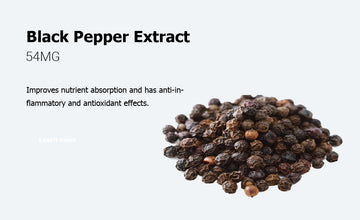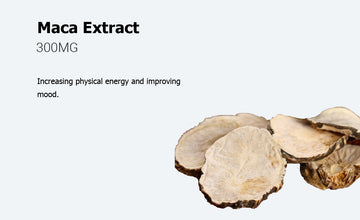Health Benefits of Black Pepper
Black pepper is a flowering vine in the family Piperaceae, cultivated for its fruit, which is usually dried and used as a spice and seasoning. It is native to South India and is widely cultivated there and in other tropical regions.
The fruit is picked when still unripe and green, and is traditionally dried in the sun, which converts the fruit to a shriveled, black color. This is the source of the common black pepper used as a spice.
The distinctive aroma and flavor of black pepper is due to the presence of the chemical compound piperine.
Piperine is responsible for the pungent, slightly spicy taste of black pepper.
It is also thought to have various health benefits, including:- Antioxidant properties - Piperine has been shown to have antioxidant effects, which may help protect against cellular damage.
- Improved nutrient absorption - Piperine can enhance the bioavailability of certain nutrients, such as curcumin from turmeric.
- Anti-inflammatory effects - Piperine has demonstrated anti-inflammatory properties in some studies.
- Potential benefits for weight loss - Some research suggests piperine may help boost metabolism and fat burning.
Black pepper is commonly used as a seasoning, added to many savory dishes, sauces, and condiments. It is one of the most widely used spices in the world. When freshly ground, it releases the most flavor and aroma.
In addition to culinary uses, black pepper also has a long history of use in traditional medicine, particularly in Ayurvedic and Chinese medicine practices. However, more research is still needed to confirm many of its purported health benefits.
The Role of Piperine in Dietary Supplements
Piperine, the alkaloid that gives black pepper its characteristic spicy flavor, has gained attention in the health and wellness industry for its potential benefits when used as a supplement.
Improving Nutrient Absorption
One of the primary uses of piperine in supplements is to enhance the bioavailability of other nutrients. Piperine has been shown to increase the absorption of various compounds, including:
- Curcumin (from turmeric) - Piperine can increase curcumin's bioavailability by up to 2000%.
- Resveratrol - Piperine may improve the absorption of this antioxidant compound.
- Vitamin B6 - Piperine can increase the body's uptake of this essential vitamin.
- CoQ10 - Piperine enhances the availability of this important nutrient for energy production.
Anti-Inflammatory and Antioxidant Properties
In addition to improving nutrient delivery, piperine also exhibits anti-inflammatory and antioxidant effects in the body, which may provide other health benefits:
- Reducing inflammation - Piperine has been shown to inhibit inflammatory pathways.
- Boosting antioxidant defenses - Piperine can increase the activity of antioxidant enzymes.
Weight Management Applications
Some research suggests piperine may assist with weight management in a few ways:
- Increasing thermogenesis - Piperine may help stimulate fat burning and boost metabolism.
- Suppressing fat cell formation - Piperine may inhibit the development of new fat cells.
- Improving glucose and lipid profiles - Piperine has been linked to better blood sugar and cholesterol levels.
Supplement Formulations
Piperine is commonly found in the following types of health supplements:
- Curcumin/Turmeric supplements
- Weight loss/metabolism boosters
- Joint health formulas
- General multivitamin/mineral supplements
When taken as directed, piperine from black pepper is generally considered safe, but high doses should be avoided. As with any supplement, it's important to consult a healthcare provider before use.
|
|





